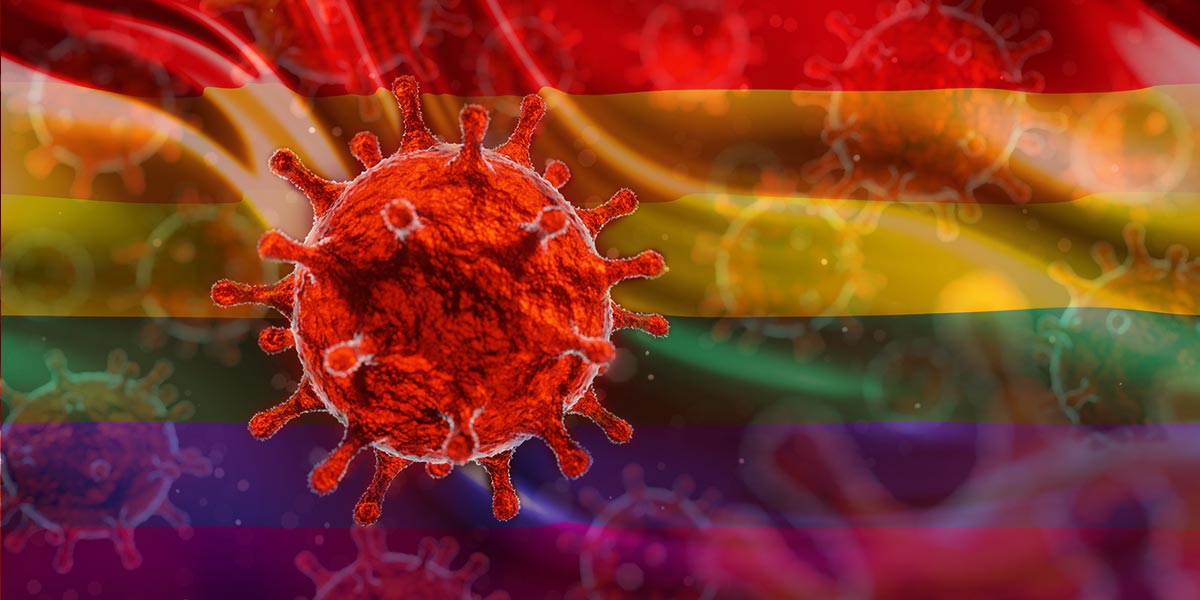Is LGBTQI+ visibility still important during a pandemic?

There simply isn’t a part of our lives that has not been affected by the coronavirus outbreak. All across the globe, people have retreated to their homes and are kept under strict lockdown conditions to try and stop the virus from spreading and to keep national health systems from becoming overwhelmed.
Across the board, activism has taken a backseat as Covid-19 ravages communities, threatening lives and livelihoods in equal parts. For now, it seems, the crisis at hand is the one that needs to be addressed. But does this mean that LGBTQI+ visibility is less crucial in times of crisis?
In fact, two international days of visibility have passed since the national lockdown was instated in South Africa. The International Transgender Day of Visibility went by without much fanfare on 31 March, as did Lesbian Visibility Day on 26 April. And, of course, we recently marked the International Day Against Homophobia, Transphobia and Biphobia on 17 May – something that was largely forgotten in the wider world.
The philosophical thought experiment involving a tree falling in a forest springs to mind – if a day of visibility goes by quietly, does that mean the voices behind the message are silent?
Certainly, these are extraordinary circumstances that are also having a definite effect on the NGOs and organisations supporting the varied needs of the local and global LGBTQI+ community.
Pandemics are not a strange phenomenon to this community, and we have been resilient in the face of the AIDS crisis from its very early beginnings. Now, HIV may put LGBTQI+ people – specifically those who are HIV positive and not on ARV treatment to protect their immune system – at higher risk of contracting Covid-19.
In addition, studies have shown that even under normal circumstances our community often experiences barriers to accessing proper healthcare, or may be reluctant to seek medical advice out of fear of stigma or discrimination – something that is particularly disconcerting in the face of an international health crisis.
We are also disproportionally affected by social isolation and mental health problems. We may have been forced to abandon our chosen family structures to spend the lockdown period with people who do not accept our sexual orientation or gender representation – and in a time that is trying for everyone. The organisations that use their platforms to advocate for our rights are prevented from doing a lot of their work on the ground.
Is LGBTQI+ visibility still important during a pandemic? Just as the issues driving the agenda of climate change activists remain relevant even as another challenge looms, the issues facing the LGBT community have not miraculously dissipated to make room for other problems. On the contrary, queer people’s existing problems exacerbate their risks of falling victim to this new threat.
This is the time to band together as a community and to use our own platforms to make sure our problems are not disregarded. This is the time to use the resources we have to support the organisations that have been by our side even when the rest of the world seemed to have forgotten about the pandemic called HIV/AIDS and the scourge of hate and exclusion.
This is the time to reach out to vulnerable members of our community – to check-in, and remind them that we’re here. Because we are still here. Even if we can’t shout it in the streets right now, we still have our own rooftops and laptops to spread the message: we are still here, and we haven’t forgotten about one another.
Leave a Reply